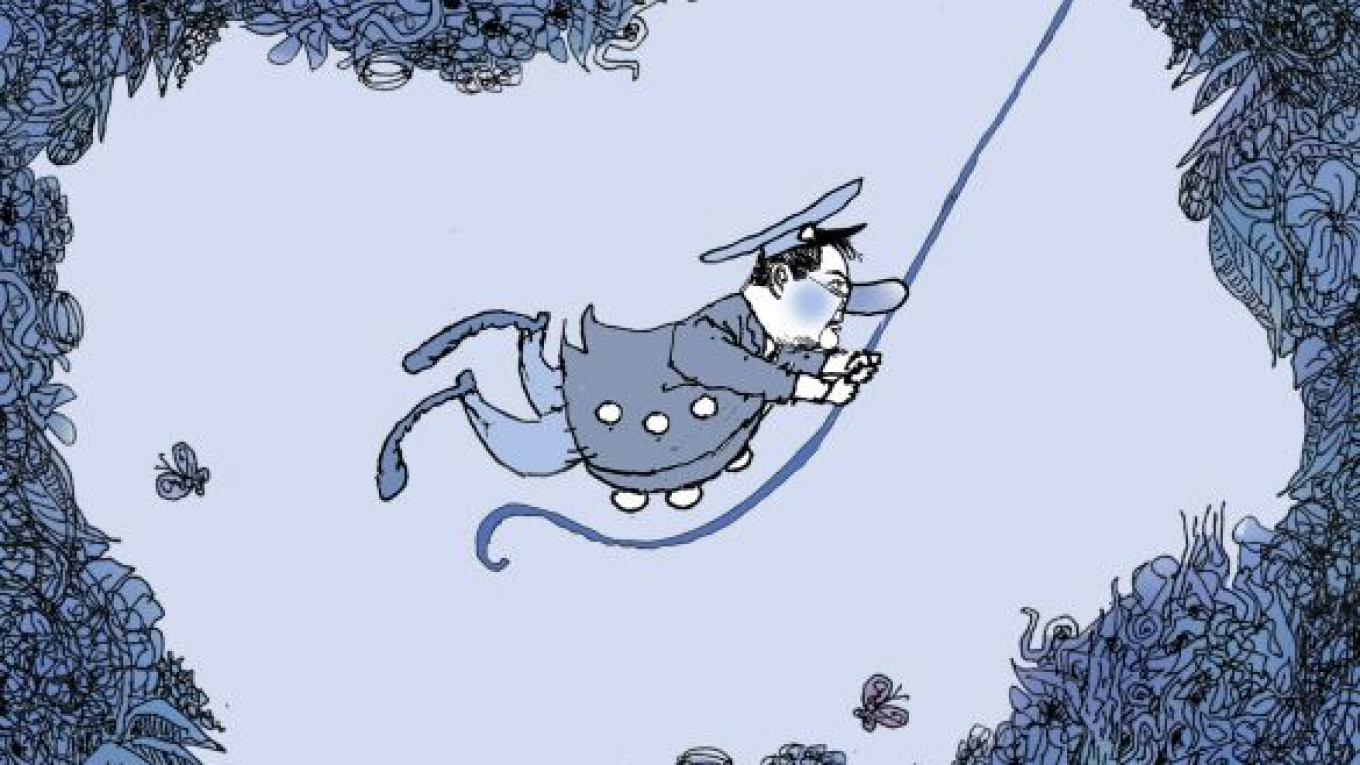After Prime Minister Vladimir Putin, which political figure would you guess state-controlled television and Kremlin-friendly newspapers have been covering the most over the past month? Deputy Prime Minister Dmitry Rogozin is the hands-down winner.
Imitating his boss, Prime Minister Vladimir Putin, Rogozin has been making a whirlwind tour of the regions — from Izhevsk to Tula, from Novosibirsk to Severodvinsk — to learn more about the condition of the defense industry that he has been appointed to oversee. And everywhere he goes, he explains that the world is a jungle full of predators that want to seize Russia's natural resources.
"If we don't modernize the country, Russia will fall prey to the world's players. If we don't do it by 2020, they will simply crush us." This was taken almost verbatim from a speech Soviet leader Josef Stalin delivered in 1931.
Rogozin's strategy for developing the country's military-industrial complex is also Stalinesque. He speaks in grandiose terms of "great military leaps forward," although his only strategy is to throw billions of dollars at military research and development and production, hoping and praying that there will be some revolutionary breakthroughs. This, of course, is impossible without reforming the military-industrial complex, improving its efficiency and reducing corruption. Doubling, quadrupling or sextupling military expenditures by itself will have little real effect.
In addition, Rogozin proposed creating a volunteer movement in support of the armed forces and military-industrial complex. This movement would be part of the All-Russia People's Front. Its founding congress will be held on Saturday. This also reveals the real reason Rogozin was brought back to Moscow from Brussels and received a promotion: to explain to his fellow nationalists that all self-
respecting nationalists vote for Putin and do not have anything do with the renegade "pseudo-
nationalists" who have supported the opposition.
Rogozin even managed to dress down Nikolai Makarov, chief of the General Staff. Makarov told reporters last week that the armed forces would not buy tanks and armed vehicles from domestic manufacturers over the next five years because of their inferior quality.
Rogozin's wishful thinking seems to know no barriers. "The manufacturing capacity of the Russian defense industry will reach such a level by the end of this year that it will be able to produce one aircraft carrier and six submarines annually," he said at a meeting in Severomorsk two weeks ago. Even the United States could not accomplish that trick. Rogozin then took great pains to explain that he had been misunderstood.
It seems that Vladimir Putin has added another clown to his circus troupe of nationalists and "patriots." Now, Liberal Democratic Party leader Vladimir Zhirinovsky has a serious rival.
At the same time, however, some of Rogozin's public statements suggest that he understands some of the challenges facing the defense industry. He seems to be aware that it is ineffective for the defense industry to be based on monopolistic corporations.
"It is wrong to undermine the basis of the development of a market economy," Rogozin wrote in a Feb. 7 comment in Krasnaya Zvezda newspaper. "Major industrial corporations should compete with one another in developing the optimal design and technological specifications for a project." This was an indirect jab at Putin's current system that supports monopolies, stifles competition and keeps inefficient firms afloat.
Rogozin also made it clear that he is opposed to the idea of nationalizing defense industry companies. During a speech in Tula last week, he said, "We need to involve private businesses in defense firms." That is the exact opposite of Putin's idea to create state corporations. At least Rogozin understands that there can be no mass production of military hardware until basic manufacturing capacity is established.
Thus, in the piles of Rogozin's pronouncements, it is possible to find a grain or two of common sense. It is significant that Putin put forward the same ideas in his Rossiiskaya Gazeta article on Monday devoted to the development of the armed forces.
I would like to believe that, under the guise of a patriotic clown, which is exploited for internal political purposes, Rogozin is actually trying to make deep reforms to the country's military-industrial complex. But this may be wishful thinking on my part. It could very well be that we are watching a real circus and that Rogozin will never take off his bright-colored baggy pants, blue wig and round, sponge nose.
Alexander Golts is deputy editor of the online newspaper Yezhednevny Zhurnal.
A Message from The Moscow Times:
Dear readers,
We are facing unprecedented challenges. Russia's Prosecutor General's Office has designated The Moscow Times as an "undesirable" organization, criminalizing our work and putting our staff at risk of prosecution. This follows our earlier unjust labeling as a "foreign agent."
These actions are direct attempts to silence independent journalism in Russia. The authorities claim our work "discredits the decisions of the Russian leadership." We see things differently: we strive to provide accurate, unbiased reporting on Russia.
We, the journalists of The Moscow Times, refuse to be silenced. But to continue our work, we need your help.
Your support, no matter how small, makes a world of difference. If you can, please support us monthly starting from just $2. It's quick to set up, and every contribution makes a significant impact.
By supporting The Moscow Times, you're defending open, independent journalism in the face of repression. Thank you for standing with us.
Remind me later.







